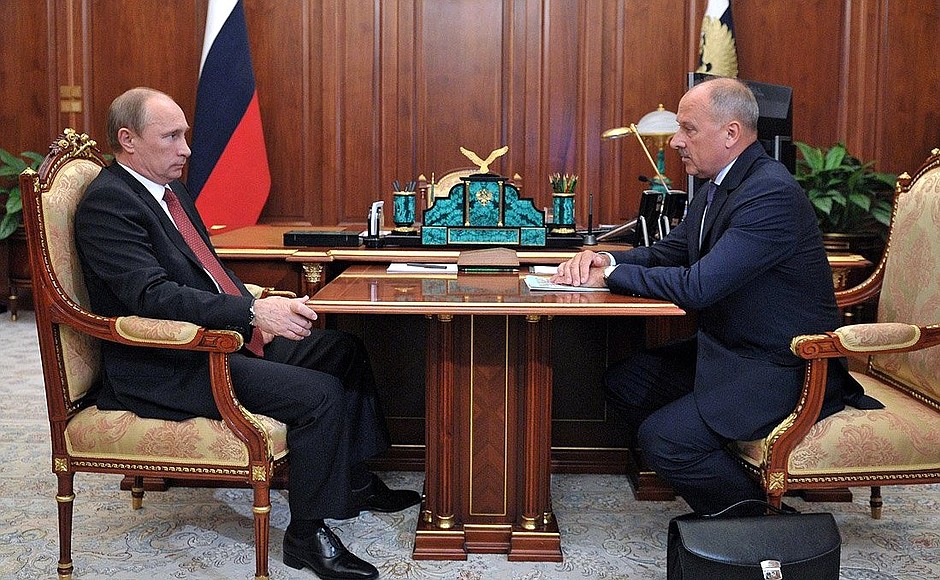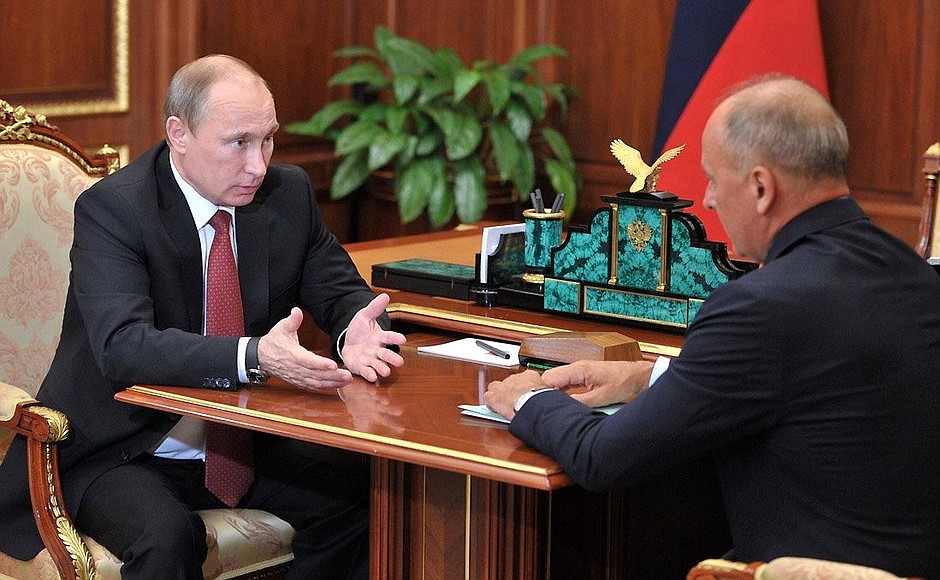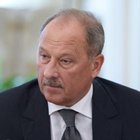* * *
President of Russia Vladimir Putin: Mr Dmitriev, I know you are soon to hold a working meeting with your colleagues from G20 countries’ development institutions in preparation for the G20 summit. What objectives have you set, and what proposals will you have for us at the summit in September? That’s my first question.
Second, we discussed the possibility of Vnesheconombank taking part in infrastructure projects, including the ones we plan to finance using money from the Reserve Fund.
Chairman of Vnesheconombank (VEB) Vladimir Dmitriev: Yes, Mr President, last year, just before Russia took over the G20 presidency, we proposed holding a meeting of the directors of top national and international development institutions here in Moscow in the run-up to the G20 summit.
The meeting will coincide with the finance ministers’ and central bank heads’ meeting and will take place on July 17–18 in Moscow. As I just said, the key development institutions will be represented at the highest level, including Germany’s institutions, European investment banks, the European Bank for Reconstruction and Development, the International Finance Corporation, and the heads of the BRICS countries’ development institutions. Practically all continents will be represented. The meeting’s main theme is long-term investment as the guarantee of stable development.
We chose this theme because lately, we see that whether for Russia or for other countries, above all for the development institutions, the search for reliable long-term investment projects is ever bigger on the agenda. We are not just talking about projects in individual countries, but also about projects between countries.
We expect to sign a communiqué that will then be presented to the G20 summit in autumn this year. It will reflect our interest in joint financing of infrastructure projects.
“There’s no question that developing infrastructure in a country like Russia is a safe investment. It’s not quick money, you won’t get a return overnight. [These projects] are not just a placement for funds, but can also bring profits.”
The important point here is that financial institutions in Western Europe, for example, are ready not only to finance regional projects, but also to examine projects here in Russia, with the aim of making long-term investment in stable development.
In this sense, this issue links in with your second question on whether Vnesheconombank is ready and has the necessary tools to manage funds going from the National Welfare Fund into infrastructure projects here in Russia.
You proposed putting 450 billion rubles into three big investment projects. We are looking together now with the Finance Ministry’s heads at the possible schemes for financing not just these projects but also other overall profitable, reliable and low-risk projects using money from the National Welfare Fund.
Of course, the National Welfare Fund is a special institution designed to protect the Pension Fund’s interests and cover its financial deficit, and so we can only consider projects that would guarantee safe investment of these funds.
I am happy that the Economic Development Ministry and the new minister support this idea, based on actual figures that show that the part of the National Welfare Fund’s money managed by the Central Bank brings a much lower return than the funds that Vnesheconombank has already invested, including in supporting Russia’s banking system.
Vladimir Putin: Let’s hope that the Pension Fund will eventually be deficit-free and the National Welfare Fund will not need to cover its deficit any longer. This is the goal we are pursuing in our continued efforts to further develop the national pension system. That’s my first point.
Second, you must coordinate things with the Direct Investment Fund, because we plan to get this institution involved in this work too. Vnesheconombank and the Direct Investment Fund both need to find their niche here. We need to look at how best to use each of these institutions.
Vnesheconombank could be a project manager and the Direct Investment Fund could do its bit to attract partners from other investment funds and sovereign funds into these projects. After all, the 450 billion rubles I spoke about at the St Petersburg International Economic Forum are essentially just the start-up capital. As we all know, each of these projects in reality needs a lot more money than that. We need this start-up capital in order to get things moving in these three directions, and so we need to choose the best development solutions for each of the projects, in order to make sure they start successfully. In this respect, your institution can play a very prominent, positive role. I hope this will be the case.
Vladimir Dmitriev: In your speech at the St Petersburg International Economic Forum, you highlighted the need for reliable private investors, and I think our Direct Investment Fund is just one such investor, as are the funds with which we work together. Therefore, we will of course coordinate our work with the Direct Investment Fund. My colleague from there, also Mr Dmitriev, took part in the consultations we had at the Finance Ministry. I think we are already close to settling on the best model to use.
Vladimir Putin: Keep working on this. True, we can’t really call the Direct Investment Fund a private investor, since its money comes from state sources, but the idea of getting genuinely private sovereign funds involved is certainly possible, all the more so as these projects we are talking about really are long-term and absolutely safe investments.
There’s no question that developing infrastructure in a country like Russia is a safe investment. It’s not quick money, you won’t get a return overnight, but it is long-term and above all reliable investment. From the point of view of the various reserve funds, which are essentially what our partners’ investment funds are, these projects are not just a placement for money, but can bring a profit, and we must make sure they can pay off the investment put into them.
It’s therefore crucial for us to have a managing company that can work with the investment raised and guarantee a profit, otherwise these projects will not be attractive for the private investors we are hoping to get involved.
<…>


